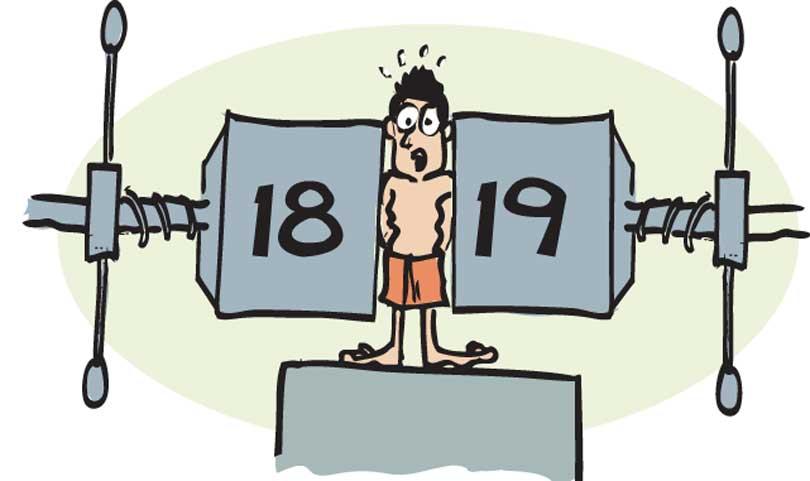02 Jul 2019 - {{hitsCtrl.values.hits}}

Almost all new Constitutions and Constitutional Amendments that have been brought in by Sri Lankan leaders after Independence - especially after 1978 - have been meant for the fulfilment of their immediate wishes.
They cannot be considered to have been promulgated taking into account the political, economic and social evolution of at least two decades, leave alone centuries. Prime Minister J.R. Jayewardene who assumed office after the 1977 Parliamentary Elections adopted the Second Republican Constitution in 1978 with the Executive Presidential mode of Governance and the Proportional Representation (PR) system in order to suppress the Opposition, mainly the trade unions, that were against his new economic system - open economy.
He seems to have gone far beyond the need of the hour and created some sort of Autocratic Rule. President Chandrika Kumaratunga brought in some checks and balances to the Executive Presidency through Independent Commissions in 2001, but only to bolster her collapsing Government.
She submitted to the terms of the JVP which came forward to bail out the Government which had faced a No-Confidence-Motion then, on the condition that the Government establishes those Commissions through the 17th Amendment to the Constitution.
Those changes were reversed and a more autocratic rule was introduced by the 18th Amendment to the Constitution during President Mahinda Rajapaksa’s tenure, apparently to govern the country for so long as he was physically fit to do so, by removing the term-limit imposed on the President by the 1978 Constitution. He abolished the Independent Commissions as well.
The present regime, before it came to office, promised the country to abolish the Executive Presidency but after assuming office decided otherwise and instead strengthened the office of the Prime Minister, while pruning certain powers of the President through the 19th Amendment in April 2015.
As the earlier rulers of the country failed to foresee the repercussions of the changes they made, they too failed to realise that they have created two equal power centres in the President and the Premier. Now, the President is the Constitutional Head of the Cabinet which is interestingly not totally under his control. The President takes decisions but the Government is not supporting him. On the other hand, the President nullifies the decisions made by the Prime Minister and the Ministers.
Parliament goes against the wishes of the President, while the President threatens to suspend the Cabinet meetings. Finally, the President who pressed the Opposition to vote for the 19th Amendment and boasted to have established democracy in the country with it now tells the country that the 19th Amendment is a curse. The UNP Ministers are arguing that the issue is not the 19th Amendment, but the two power centres created by it having come under two political parties. Had the President and the Prime Minister been elected from the same political party, the country wouldn’t have witnessed a stalemate as it does now, they contend.
They seem to ignore the fact that a Constitution must be a mechanism that should suit every situation, without causing major crises and hindering the development of the country. There was a time during President Chandrika Kumaratunga’s tenure as well when the President represented one party and the Prime Minister represented another. There were also clashes between the two then, but when the situation came to a head the President proved that there were no two power centres in the country, by dissolving the Government in 2004.
Former President Mahinda Rajapaksa, using the opportunity, attempts now to tell the country that the 18th Amendment to the Constitution which he brought in was flawless. He might have not forgotten that his group was the majority in Parliament when the 19th Amendment was adopted repealing the 18th Amendment and it was with the support of his group that those changes were made. Besides, the 18th Amendment had many undemocratic features in it.
President Sirisena’s suggestion to scrap the 19th Amendment is nothing but throwing the baby out with the bathwater. The Amendment contains many progressive provisions, such as those for the Independent Commissions, the Right to Information and it curtails the legal immunity of the President, as we witnessed in December last year when the Supreme Court annulled his decision to dissolve the Parliament.
We should not change the country’s basic law according to the whims and fancies of representatives we have elected, as they had done so in the past, in order to overcome their immediate problems.
20 Apr 2024 1 hours ago
20 Apr 2024 2 hours ago
20 Apr 2024 3 hours ago
20 Apr 2024 4 hours ago
20 Apr 2024 5 hours ago